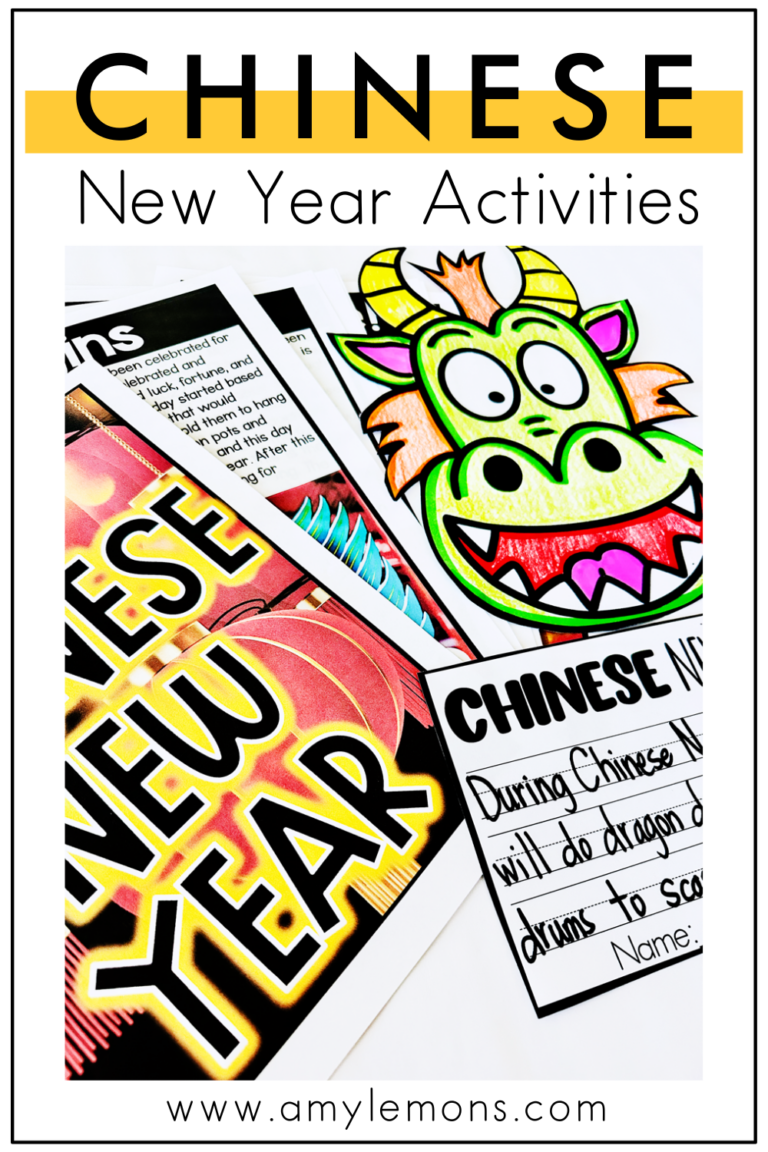
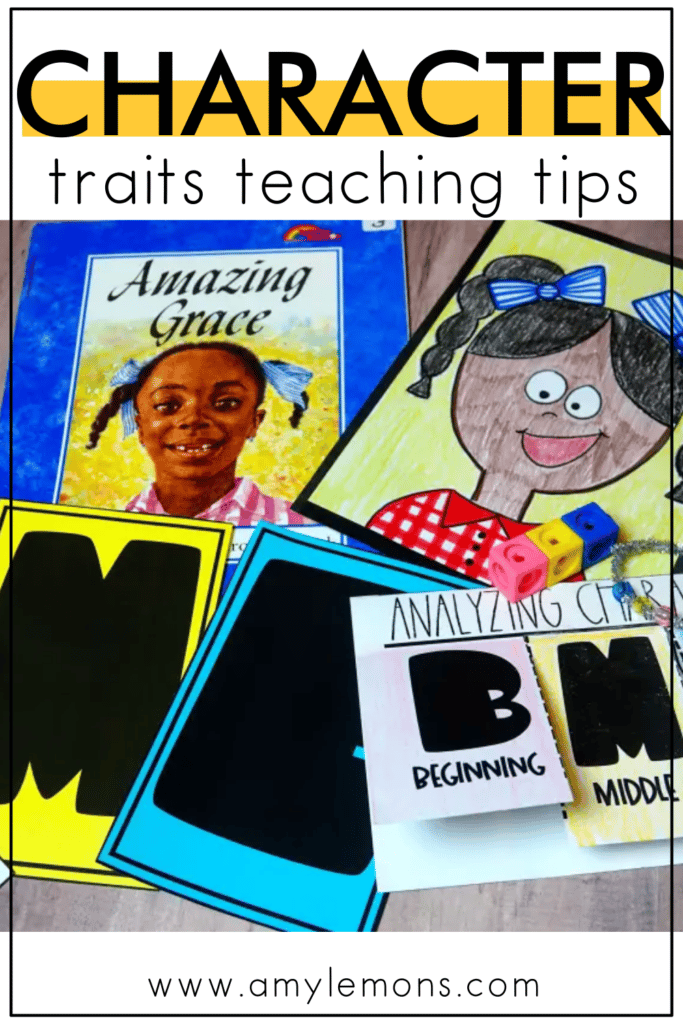
In most grade levels students are expected to describe characters, identify character traits, explain character development, or something similar. Today I have some teaching tips that can apply to many different grade levels. For this blog post, I am using the book Amazing Grace (from our 1st grade Rooted in Reading unit), but all of these activities can be done with ANY fictional story.
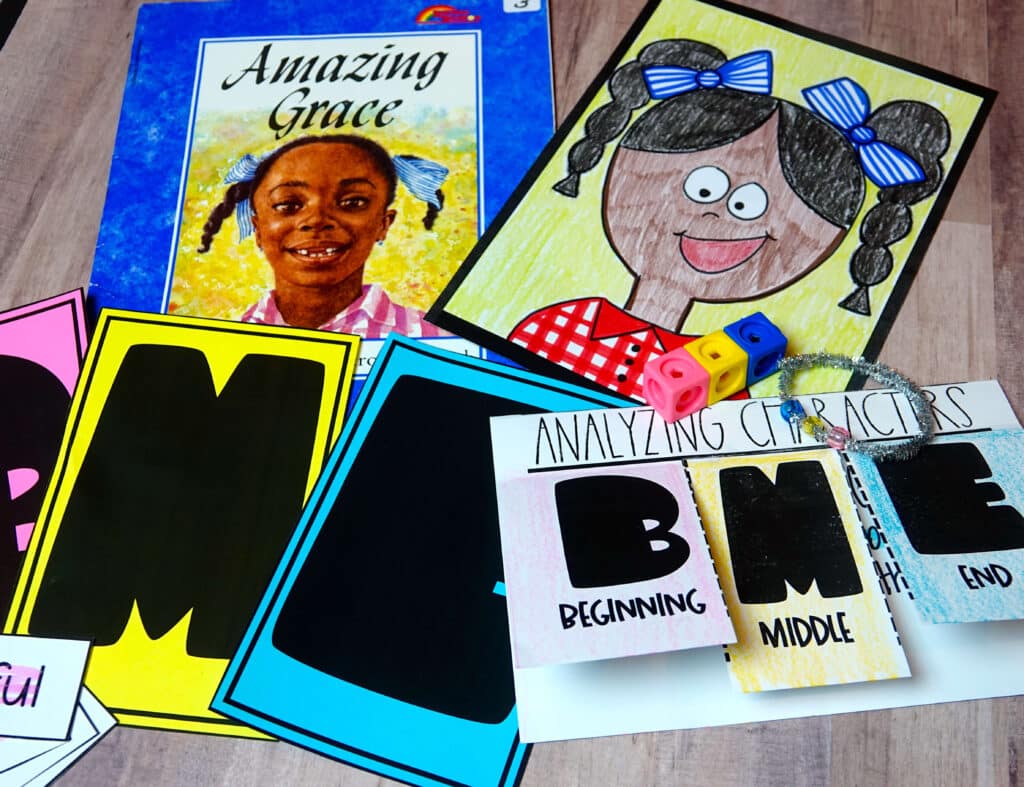
This may look like any regular anchor chart, but I want you to notice the colors that I used. Assigning a color to each part of the story will help your students to always associate the sequence with a color. I used common highlighter colors, but you can use any! Here’s my color-coding system:
Beginning: Pink, Middle: Yellow, End: Blue
Now I can always use those same colors to describe the character throughout the story. I can highlight text evidence with those colors, use sticky notes with those colors, etc. We will explore other ways to utilize the color coding throughout this blog post!
I think it is important to note that character traits may be introduced during one part of the story, but that doesn’t mean they go away. For example, in the beginning of Amazing Grace we see that Grace is playful, and that character trait is carried over throughout the book.
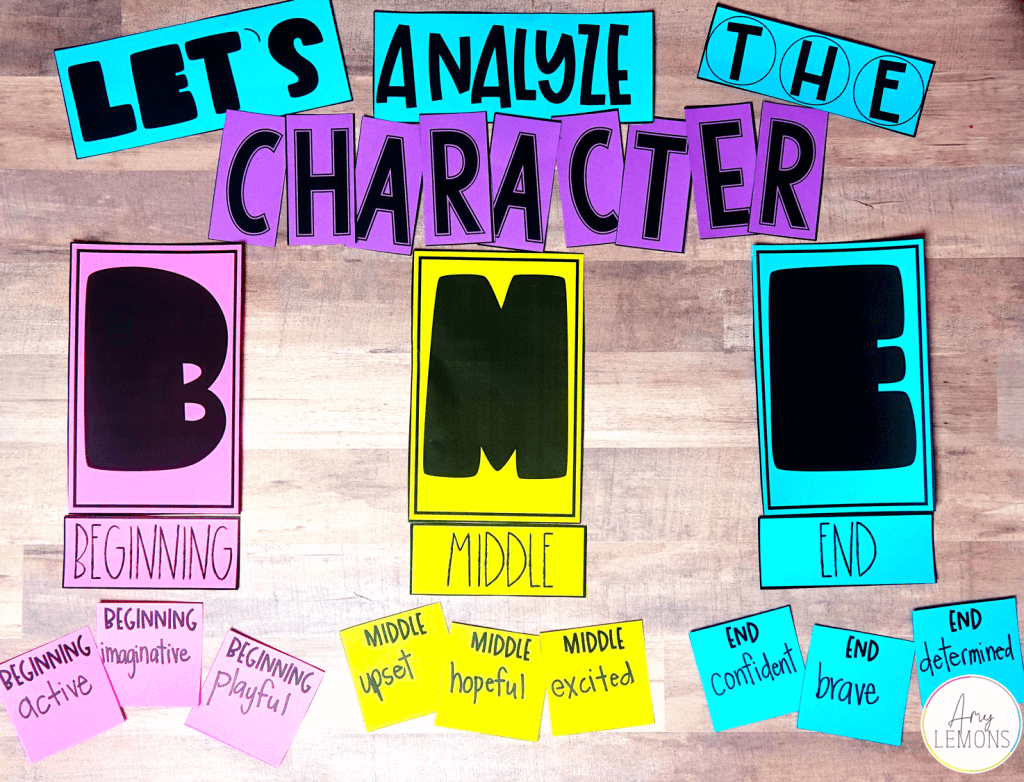
Students can also create retelling bracelets using the same colors. You’ll notice that I used pink, yellow, and blue beads on a silver pipe cleaner. Students wear the bracelet and slide the beads to describe the character in the beginning, middle, and end of the story. You can also differentiate by putting more beads on so that students give more than one character trait for each part of the story.
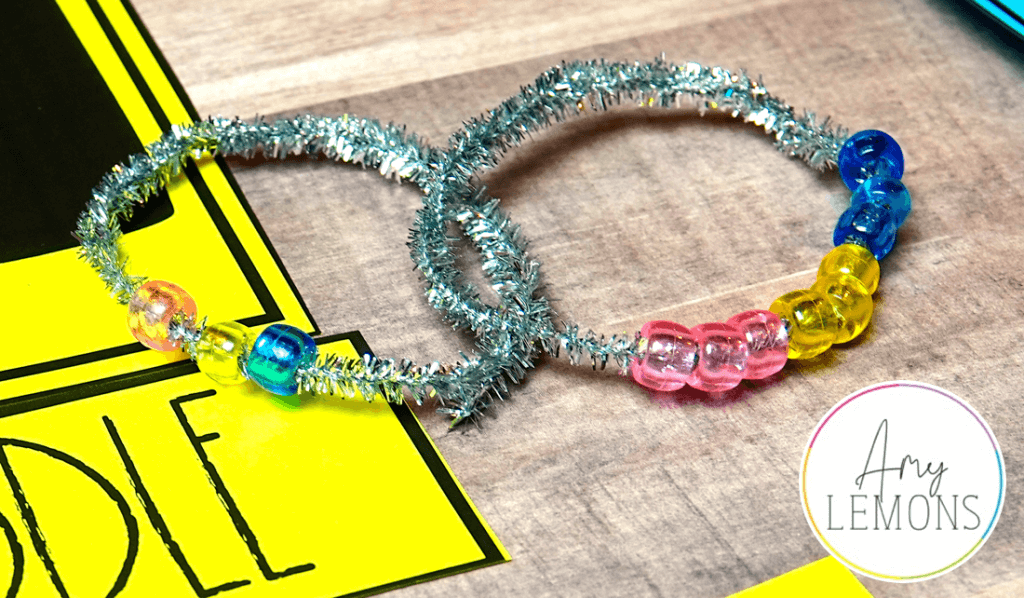
To hold students accountable they can also use a flap-book, printable, or graphic organizer to describe the character throughout the story. I love flap-books because it gives you the option to have students draw, write one character trait, or write in sentences. They are so easy to differentiate. You can see here that when I described Grace I used my same colors. I also highlighted the character trait for the end of the story in blue.
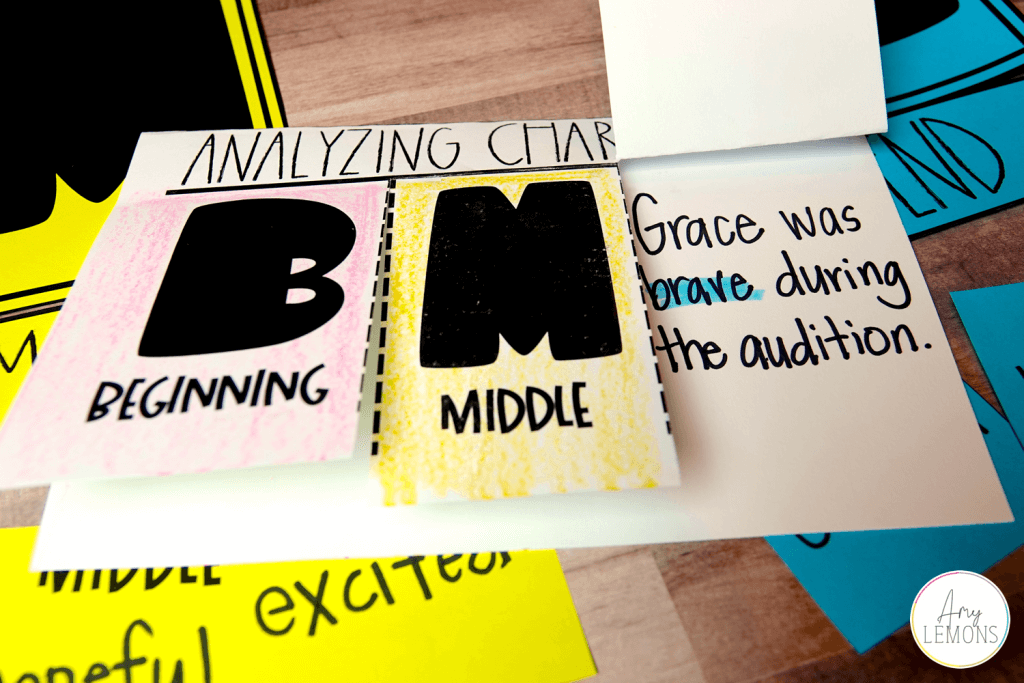
Want another tactile way for your students to describe the character throughout a story? Use linking cubes that match the colors you assigned to the B, M, and E of the story. Students link the cubes together as they describe the character.
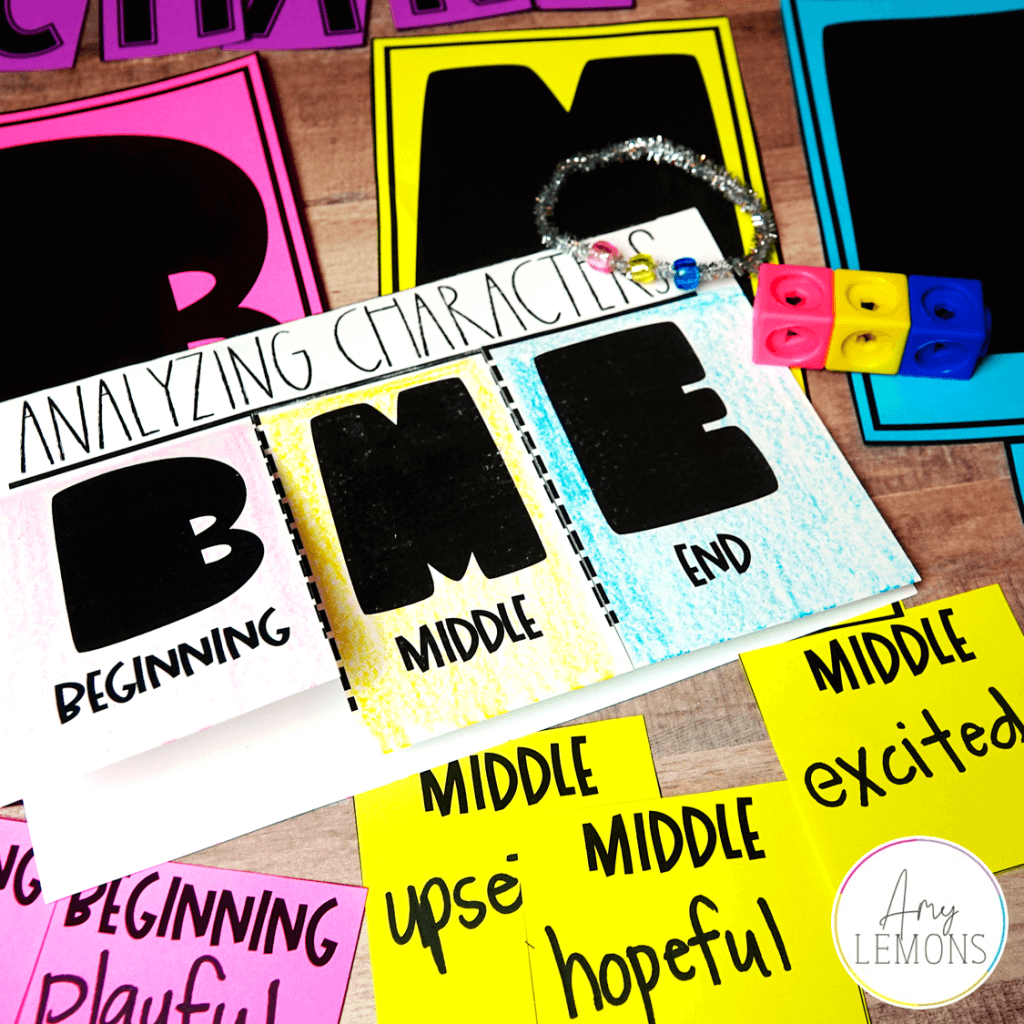
Another tip is to print common character traits on cards (or write them on index cards). This way you can use them for many different stories throughout the year. If you laminate the cards you can use them over and over again. Pull out the cards that describe the character and have students sequence the character traits.
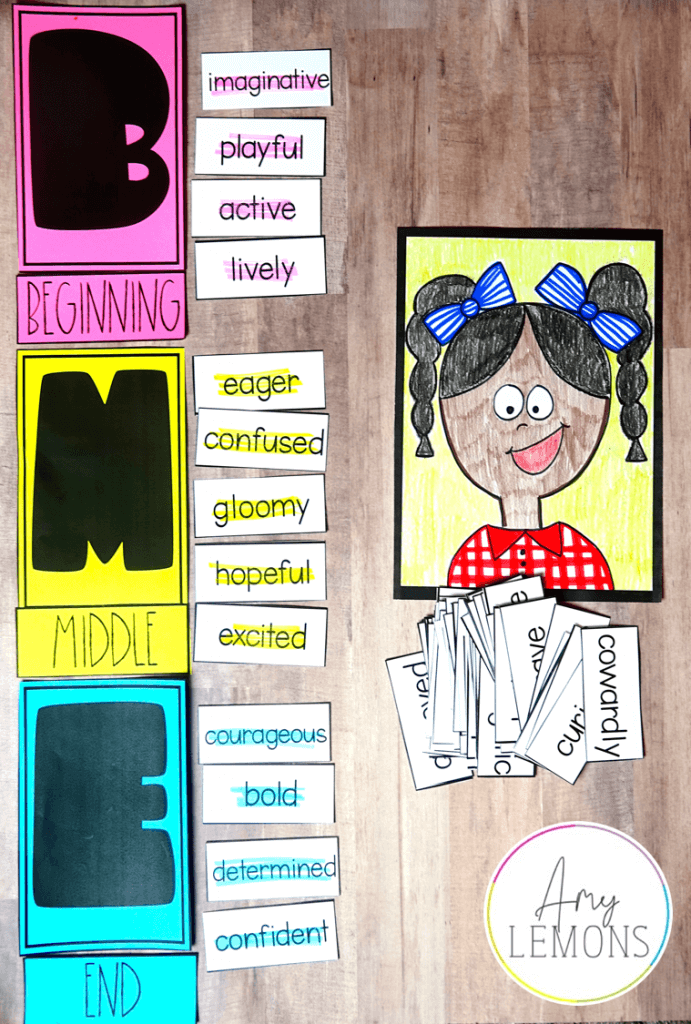
For more activities that go along with Amazing Grace, click HERE! It is a great book to discuss character development and lessons learned from a character.
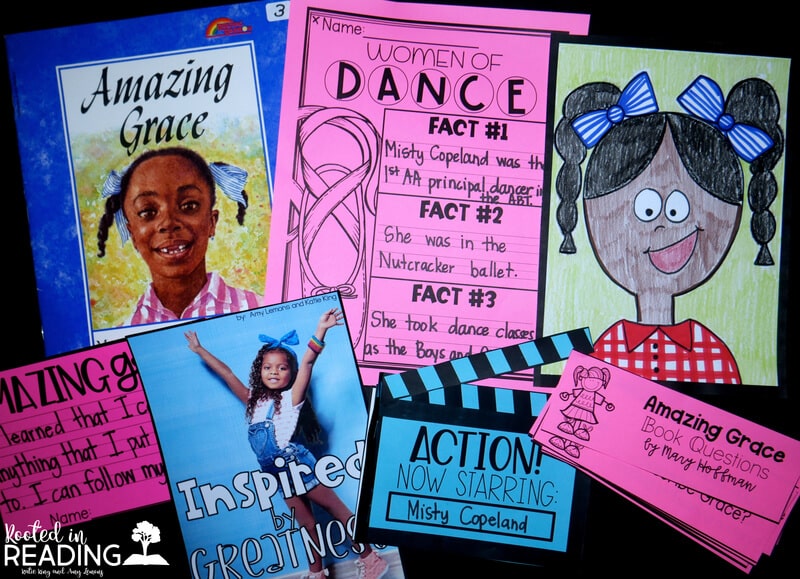
Now I have some character trait FREEBIES for you! I’ve put the anchor chart, flap-book, and character trait cards into one document for you. You can grab that below!
Don’t want to forget this lesson? Pin the image below to save for later!
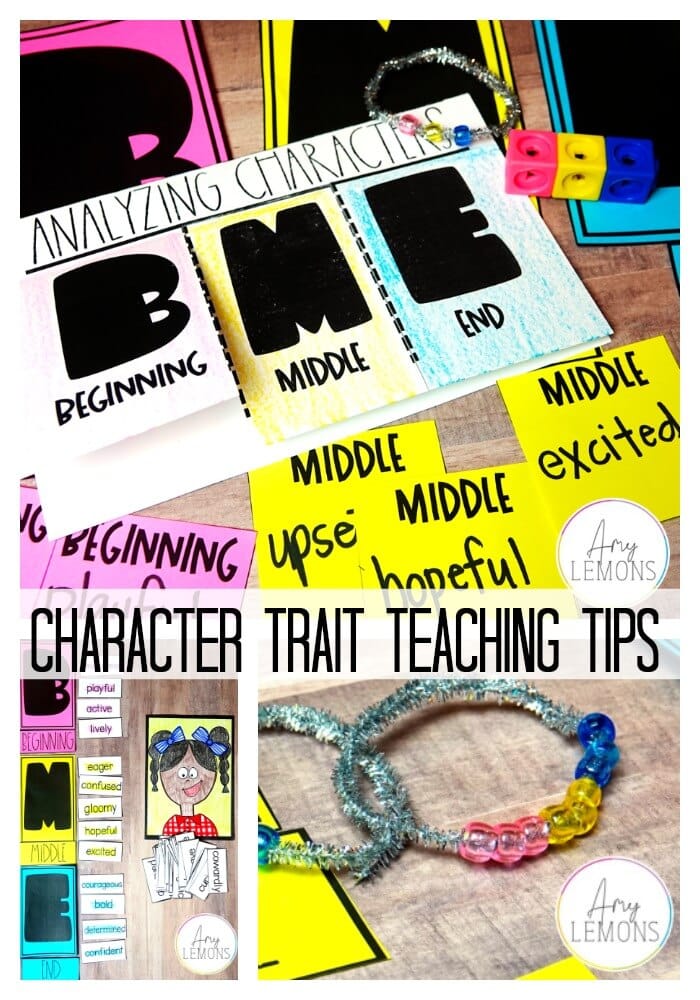


Hey, y’all! My name is Amy Lemons and I am passionate about providing students with both engaging and effective standards-based Math and ELA lessons.
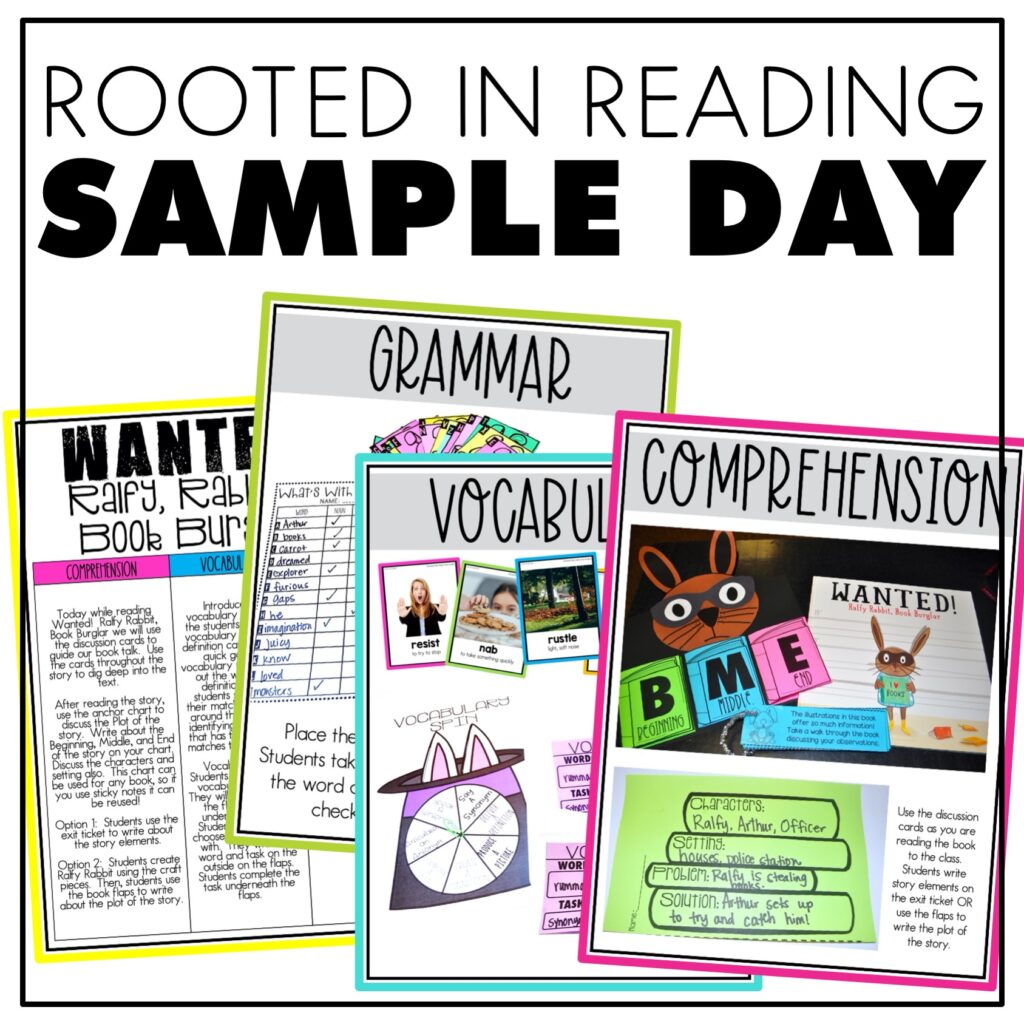
Sample a day of Rooted in Reading with these lesson plans and activities for Reading Comprehension, Vocabulary, and Grammar!
5 Responses
Thank you! Great resource, this is actually the standard I’m teaching this week with the text “Stone Girl Bone Girl.” I think this will be great for a workstation for additional practice.
I have your second and third grade rooted in reading. Did you add anything to have them aligned with the new Texas ELA TEKS? If so, where do I find that? Thanks for your time and I love your items.
Amanda Baker-Adkins
We have aligned our units to the new TEKS, but we did not adjust the activities within the units.
Thank you for the character trait cards! I teach ESOL, grades K – 5. These are perfect for all my students. We will be using these this week.
Yay! That’s so awesome!